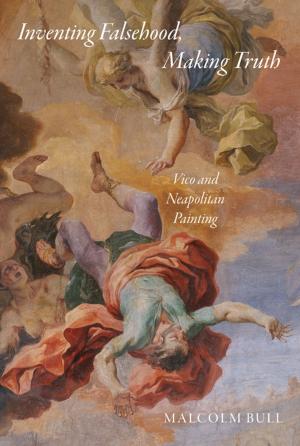Cold War Expressionism: Perverting the Politics of Perception/Bombast, Blacklists and Blockades in the Postwar Art World
Nonfiction, Art & Architecture, Art History| Author: | Dennis Broe | ISBN: | 9781311346049 |
| Publisher: | Dennis Broe | Publication: | April 17, 2015 |
| Imprint: | Smashwords Edition | Language: | English |
| Author: | Dennis Broe |
| ISBN: | 9781311346049 |
| Publisher: | Dennis Broe |
| Publication: | April 17, 2015 |
| Imprint: | Smashwords Edition |
| Language: | English |
Cold War Expressionism is an expose of the art world after World War II where a new triumphalism and a growing conservatism on the part of the US helped bring to power a depoliticized art which went under the rubric of Abstract Expressionism and which functioned as an advertisement for American capitalism while erasing the social impulses of prior European Modernisms and the American Social Expressionists of the 1930s and mid-1940s.
This book details how more socially aware forms of both creating and distributing art were erased in the McCarthyite moment after the war, the beginning of the flourishing of the modern privatized gallery system which has now led to the art world becoming a site of speculation to rival that of real estate as art becomes one more item on the commodities market.
The career of Mark Rothko is discussed as emblematic of an artist caught in this quandary, one who both resisted and succumbed to the corporatization of his art. Also highlighted is the postwar path of the Social Realists Alice Neel, Jacob Lawrence and Ben Shaun and the alternate modernism of the Mexican Muralists and particularly David Alfaro Siqueiros.
Cold War Expressionism is an expose of the art world after World War II where a new triumphalism and a growing conservatism on the part of the US helped bring to power a depoliticized art which went under the rubric of Abstract Expressionism and which functioned as an advertisement for American capitalism while erasing the social impulses of prior European Modernisms and the American Social Expressionists of the 1930s and mid-1940s.
This book details how more socially aware forms of both creating and distributing art were erased in the McCarthyite moment after the war, the beginning of the flourishing of the modern privatized gallery system which has now led to the art world becoming a site of speculation to rival that of real estate as art becomes one more item on the commodities market.
The career of Mark Rothko is discussed as emblematic of an artist caught in this quandary, one who both resisted and succumbed to the corporatization of his art. Also highlighted is the postwar path of the Social Realists Alice Neel, Jacob Lawrence and Ben Shaun and the alternate modernism of the Mexican Muralists and particularly David Alfaro Siqueiros.















